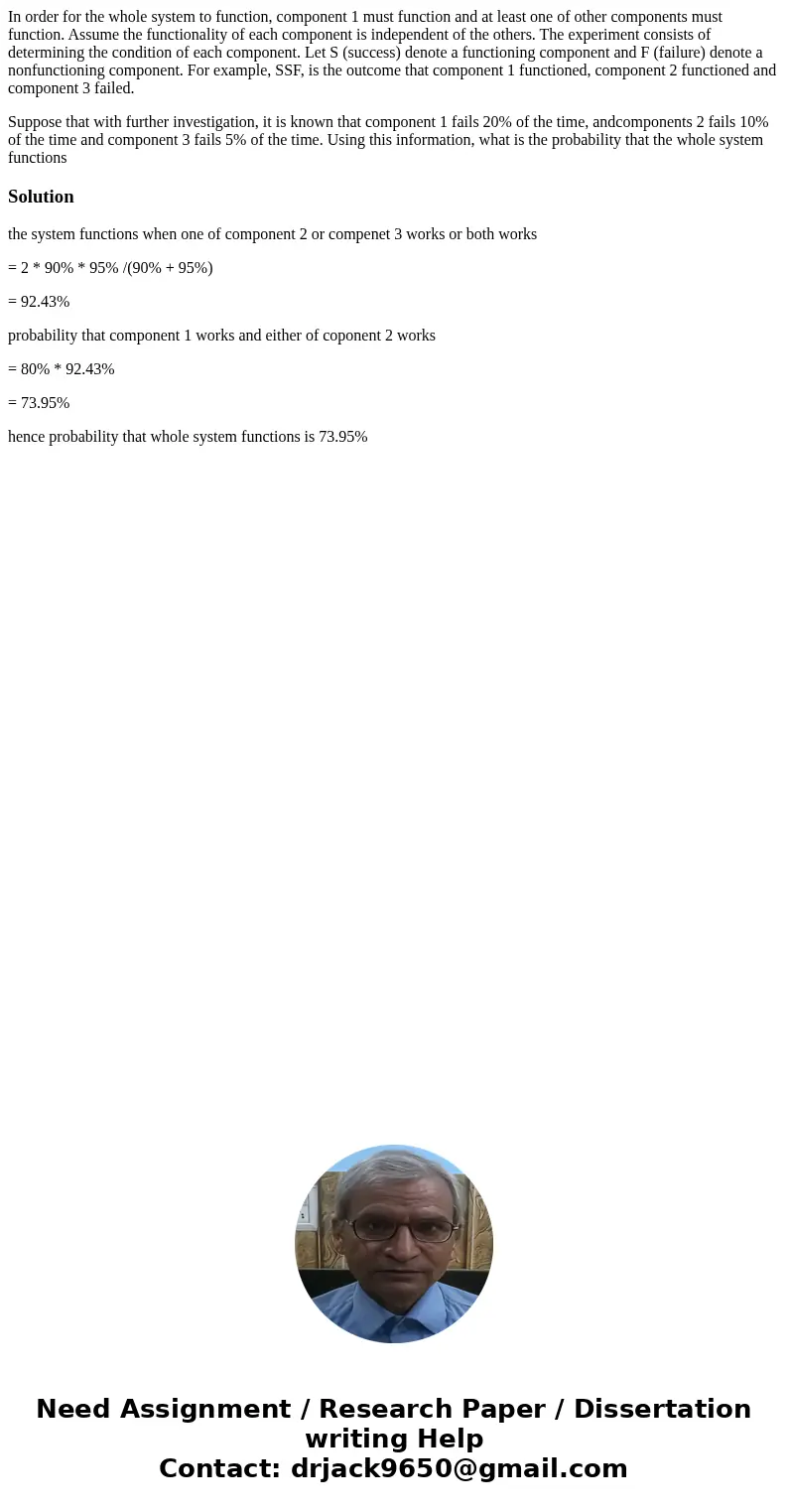In order for the whole system to function component 1 must f
In order for the whole system to function, component 1 must function and at least one of other components must function. Assume the functionality of each component is independent of the others. The experiment consists of determining the condition of each component. Let S (success) denote a functioning component and F (failure) denote a nonfunctioning component. For example, SSF, is the outcome that component 1 functioned, component 2 functioned and component 3 failed.
Suppose that with further investigation, it is known that component 1 fails 20% of the time, andcomponents 2 fails 10% of the time and component 3 fails 5% of the time. Using this information, what is the probability that the whole system functions
Solution
the system functions when one of component 2 or compenet 3 works or both works
= 2 * 90% * 95% /(90% + 95%)
= 92.43%
probability that component 1 works and either of coponent 2 works
= 80% * 92.43%
= 73.95%
hence probability that whole system functions is 73.95%

 Homework Sourse
Homework Sourse